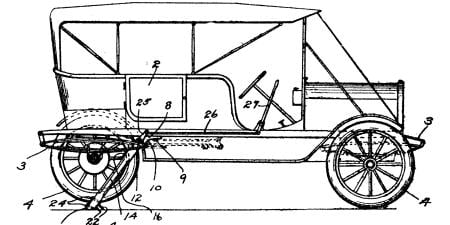Abstract
Although women are inextricably involved in the study of germline editing, their interests have not been significantly represented in debates about the evolution of genome editing technology. Discussions have taken place about effects of germline editing on women as parents and members of families, but key discussions about women’s health and well-being as patients and subjects are lacking. This neglect is due in part to restrictions on uterine transfer of modified human embryos, a boundary that has now been crossed. As a result, only scant discussion has taken place about safeguards needed to ensure that women who participate in germline modification research are not exposed to disproportionate risk in exchange for benefits they might expect for future offspring. This omission sets the stage for serious ethical implications for women and their families.
Women and Human Genome Editing
The recent births of twin girls in China (with a third expected in late 2019) whose genomes were edited using CRISPR technology have sparked a groundswell of ethical debate.1,2,3,4 These discussions center on questions about how and why both modification and uterine transfer of human embryos occurred, why established ethical boundaries for human subject research were crossed, which safeguards could have prevented this violation from occurring, and which oversight mechanisms were ignored or evaded.5,6,7,8 As science is an international endeavor, we must ask which bioethical frameworks should guide researchers from different countries and cultural backgrounds in a unified effort to conduct germline editing research in a way that reflects the goals and values of individuals, families, and societies.9,10 Statements from leading scientists, policymakers, and ethicists agree that there must be robust and deliberate engagement of multiple stakeholders in order to responsibly govern these technologies.11,12,13
Yet an important question is missing from this discussion: What does human genome editing mean for women who elect to carry a genetically modified embryo? This question must be considered, as the study of human genome modification is still experimental and any effects on children born following germline editing are largely unknown. Thus, germline research ultimately will require involvement of women willing to gestate a modified human embryo, at least until the possibility is realized of using an artificial uterus to do so.14 It follows that, in studies of germline editing, women must be willing to become research participants. As subjects, women will take on risks and burdens associated with extensive prenatal tests and procedures.15,16,17 Although uterine transfer of a genetically modified human embryo is currently prohibited in numerous countries,3 recent events signal that the time has come to seriously and fully consider the ethical implications of human germline editing experimentation.
The health and well-being of women who will be involved in studies of germline editing, however, has not figured prominently in discussions about whether and how this technology should evolve. The interests of women as prospective parents and members of families who will raise children whose genomes have been edited has been discussed.11,14,18,19,20,21 Yet virtually no discussion has taken place about establishing safeguards to ensure that women subjects are not exposed to disproportionate risk22 in exchange for benefits they might expect for future offspring. Guidance is needed about rigorous protocol design, how to prioritize health and well-being outcomes for women subjects, and obligations to subjects who experience negative outcomes. Without such guidance, women and their families could be at risk.
Safety of Gestating Germline-Edited Embryos
Several lines of evidence suggest that women subjects in germline editing trials could be at risk. First, data on assisted reproductive technologies (in vitro fertilization and associated procedures) indicate that women who undergo these procedures are at increased risk for obstetric complications.15,16,17 These findings raise questions about how manipulation of a human embryo or the embryonic environment might impact maternal obstetric outcomes. For instance, there is increased risk of preeclampsia (an obstetric condition that affects women during pregnancy and can have cardiovascular implications after delivery) in women whose pregnancies result from frozen-thawed embryo transfer during hormonally regulated cycles as compared to both women whose pregnancies result from frozen-thawed embryo transfer during natural ovulatory cycles and women whose pregnancies result from fresh embryo transfer.23 Studies also show that artificial reproductive technologies are associated with increased risk of other placental abnormalities that directly affect maternal health, including placenta previa, placental abruption, and vasa previa.16 What these data indicate is that manipulation of human embryos and its effects on events at the embryonic-maternal interface can influence maternal outcomes, a critical issue to consider when an embryonic genome is altered.
Virtually no discussion has taken place about establishing safeguards to ensure that women subjects are not exposed to disproportionate risk.
Second, studies of cell-free DNA (cfDNA) suggest the need for close examination of the effects on women of carrying a genetically modified embryo, both during and after pregnancy. Cell-free DNA screening was developed to identify the risks of fetal aneuploidy by measuring fragments of fetal DNA circulating in maternal blood during pregnancy.24 As a result of this technique, other formative scientific information about the maternal-fetal interface has been acquired; fetal cfDNA is identifiable in the maternal blood after birth and measurable for months after delivery.25 Although active germline modification of embryos would be complete prior to birth, because the modified genome cfDNA would persist in the maternal circulation, we must consider effects on women of this lingering cfDNA that are as yet not fully understood.
Data emerging from these and other studies raise important questions about the health effects on women of participating in studies of embryonic genome modification, including not only illnesses that can develop during pregnancy but also those that might manifest during the postpartum period—or months, years, or possibly generations after giving birth. Although existing guidance from scholars and health organizations highlights the need to monitor future health effects of human genome modifications (and recognizes the challenges of doing so), it focuses on health outcomes of offspring—not on the health and well-being of women, including those who experience miscarriage, fetal loss, or other sequelae.2,5,9,12 The field of human embryo modification should not move forward unless we have means for understanding the procedure’s impact on women, fetuses, and descendants of genetically modified persons.
Why Excluding Women From Discussion of Germline Editing Is Wrong
Study design. Germline editing studies must be scientifically rigorous and emphasize appropriate and ethically justifiable outcomes for women subjects. Without such emphasis, women subjects could be exposed to undue harms, not only because harms could go unrecognized at the time of the study but also because the absence of monitoring would make identifying and articulating future implications for subjects impossible. Germline editing trials thus must measure short-term and long-term health outcomes of subjects to enable identification and articulation of key ethical, legal, and social implications of these technologies. Women also can be disproportionately harmed if there are not clear endpoints for trials with significant risks or high rates of serious adverse events.18 These are critical considerations for any trial, but in studies involving pregnancy, some might be willing to tolerate greater risks to pregnant women out of concern for fetal safety and, ultimately, favorable outcomes for children.26 Recognition of women’s interests in germline editing studies provides the impetus to develop scientifically and ethically justifiable safeguards that do not compromise the health of women subjects for the expected benefit of the fetus or child. Without such safeguards, we will fail to understand how women’s gender roles (as mothers, most obviously) in families and societies could be affected by gene editing27 or exacerbate existing disparities and inequities.
Respect for autonomy. There is also a need to develop and mobilize robust mechanisms to ensure that women’s consent to participate in germline modification trials is informed and autonomously given. Informed consent should be guided by discussion of existing scientific data and uncertainties inherent in clinical trials; it depends on studies being well designed, ethically and legally administered, and findings—both positive and negative—being accurately reported and disseminated. Thus, mechanisms are needed to ensure that researchers and physicians have access to positive and negative findings, understand the risks to women patients or subjects, and are able to communicate risk information effectively to these women. To further support women’s autonomous decision making, women should be assured that their decision to participate in research is entirely voluntary. Ensuring voluntary participation requires researchers to consider potential sources of coercion of or undue influence on women to be subjects in germline editing research, especially given social pressures for women to bear healthy children—and to do so, if necessary, even at risk to themselves by utilizing available medical technology.14 In addition, emerging data reveal differences in how women and men view potential benefits of germline modification. For example, men might be more “accepting” of germline gene modification than women.28 Consequently, the consent process should be conducted in a way that is gender neutral.
Research participants. Discussion of the ethics of germline editing should include respect for women’s autonomy and ensure that women are able to make autonomous decisions that align with their values and needs. When women consent to enroll in germline editing trials, it is critical that they’ve assessed potential benefits and harms. Important discussions have emerged about serious ethical and clinical implications of excluding pregnant women from clinical trials.26 Specifically, because there are gaps in the data on treatment of disease during pregnancy, pregnant women receiving “standard” care, which is “more like experiment than treatment,” are possibly exposed to potential harms (both to themselves and their families).29
Recommendations
The following recommendations address future roles of women in germline editing.
- It is essential to recognize the role of women as research subjects, given that their health and well-being are directly affected and considering their roles in families in which genetically modified children will be raised. Ethical obligations to women as research subjects include protecting the privacy of women subjects’ health information; complying with standards of care pertaining to maternal health and pregnancy termination if serious complications of germline modification compromise a woman’s, fetus’, or child’s health; and considering social and financial responsibilities to women and their families who are harmed as a result of women’s participation in a trial.
- Maternal outcomes should be prioritized in study design and conduct, so that researchers, physicians, and society do not ask or expect women to take on unacceptable (ie, disproportionate or disparate) levels of risk in order to advance germline editing technology.
- Institutional review boards and other oversight bodies should be staffed with appropriate content experts in women’s health and reproductive medicine to ensure compliance with human subject protections, including informed consent practices that support women’s voluntary and informed decision making about trial enrollment.
Conclusion
The promise and peril of germline modification innovation calls for researchers, ethicists, policymakers, and other key stakeholders to actively collaborate with women and ensure that knowledge generated by research balances subjects’ and society’s goals and values.29 The complexity and importance of ethical questions about germline editing requires a “wide range of voices”3 in developing governance structures and guidelines that consider our personal, social, and cultural beliefs about human life, sex, and reproduction.30,31 Women as prospective subjects, scientists, policymakers, and physicians must not only be among those voices but also have priority in making decisions about how potential risks and benefits will be assessed in the name of germline editing technology innovation and progress.
References
-
Marchione M. Chinese researcher claims first gene-edited babies. AP News. November 26, 2018. https://www.apnews.com/4997bb7aa36c45449b488e19ac83e86d. Accessed March 15, 2019.
- Brokowski C, Adli M. CRISPR ethics: moral considerations for applications of a powerful tool. J Mol Biol. 2019;431(1):88-101.
- Lander ES, Baylis F, Zhang F, et al. Adopt a moratorium on heritable genome editing. Nature. 2019;567(7747):165-168.
-
Wang H, Li J, Gao C, Wei W. CRISPR twins: a condemnation from Chinese academic societies. Nature. 2019;564(7736):345.
- Cyranoski D. The CRISPR-baby scandal: what’s next for human gene-editing. Nature. 2019;566(7745):440-442.
- Lanphier E, Urnov F, Haecker SH, Werner M, Smolenski J. Don’t edit the human germ line. Nature. 2015;519(7544):410-411.
- Baltimore D, Berg P, Botchan M, et al. A prudent path forward for genomic engineering and germline gene modification. Science. 2015;348(6230):36-38.
-
Nicol D, Eckstein L, Morrison M, et al. Key challenges in bringing CRISPR-mediated somatic cell therapy into the clinic. Genome Med. 2017;9(1):85.
-
World Health Organization. WHO-RUSH Human Genome Editing Committee. https://www.who.int/ethics/topics/human-genome-editing/Human-genome-editing-1st-advisory-committee-VPC.pdf?ua=1. Published March 19, 2019. Accessed June 13, 2019.
- Allyse M, Bombard Y, Isasi R, et al. What do we do now? Responding to claims of germline gene editing in humans. Genet Med. 2019;21(10):2181-2183.
-
National Academies of Sciences, Engineering, and Medicine. Human Genome Editing: Science, Ethics, and Governance. Washington, DC: National Academies Press; 2017.
-
Nuffield Council on Bioethics. Genome Editing: An Ethical Review. London, UK: Nuffield Council on Bioethics; September 30, 2016. http://nuffieldbioethics.org/wp-content/uploads/Genome-editing-an-ethical-review.pdf. Accessed March 15, 2019.
- Scott CT, Selin C. What to expect when expecting CRISPR baby number four. Am J Bioeth. 2019;19(3):7-9.
- Allyse M, Michie M, Mozersky J, Rapp R. Cherchez la femme: reproductive CRISPR and women’s choices. Am J Bioeth. 2015;15(12):47-49.
-
Coutifaris C. Elective frozen embryo transfer for all? Lancet. 2019;393(10178):1264-1265.
-
American College of Obstetricians and Gynecologists’ Committee on Obstetric Practice, Committee on Genetics; US Food and Drug Administration. Committee opinion no. 671: perinatal risks associated with assisted reproductive technology. Obstet Gynecol. 2016;128(3):e61-e68.
-
Kuivasaari-Pirinen P, Raatikainen K, Hippeläinen M, Heinonen S. Adverse outcomes of IVF/ICSI pregnancies vary depending on aetiology of infertility. ISRN Obstet Gynecol. 2012;2012:451915.
- Simonstein F. Gene editing, enhancing and women’s role. Sci Eng Ethics. 2019;25(4):1007-1016.
-
De Wert G, Heindryckx B, Pennings G, et al; European Society of Human Genetics; European Society of Human Reproduction and Embryology. Responsible innovation in human germline gene editing: background document to the recommendations of ESHG and ESHRE. Eur J Hum Genet. 2018;26(4):450-470.
-
De Wert G, Pennings G, Clarke A, Eichenlaub-Ritter U, et al; European Society of Human Genetics; European Society of Human Reproduction and Embryology. Human germline gene editing: recommendations of ESHG and ESHRE. Eur J Hum Genet. 2018;26(4):445-449.
-
Nuffield Council on Bioethics. Genome Editing and Human Reproduction. London, UK: Nuffield Council on Bioethics; 2018. http://nuffieldbioethics.org/wp-content/uploads/Genome-editing-and-human-reproduction-FINAL-website.pdf. Accessed May 23, 2019.
-
Emanuel EJ, Wendler D, Grady C. What makes clinical research ethical? JAMA. 2000;283(20):2701-2711.
- von Versen-Höynck F, Schaub AM, Chi YY, et al. Increased preeclampsia risk and reduced aortic compliance with in vitro fertilization cycles in the absence of a corpus luteum. Hypertension. 2019;73(3):640-649.
-
Norton ME, Brar H, Weiss J, et al. Non-Invasive Chromosomal Evaluation (NICE) study: results of a multicenter prospective cohort study for detection of fetal trisomy 21 and trisomy 18. Am J Obstet Gynecol. 2012;207(2):137.e1-8.
- Invernizzi P, Biondi ML, Battezzati PM, et al. Presence of fetal DNA in maternal plasma decades after pregnancy. Hum Genet. 2002;110(6):587-591.
- Lyerly A, Little MO, Faden R. The second wave: toward responsible inclusion of pregnant women in research. Int J Fem Approaches Bioeth. 2008;1(2):5-22.
-
Hamzelou J. Let people most affected by gene editing write CRISPR rules. New Scientist. April 29, 2016. https://www.newscientist.com/article/2086548-let-people-most-affected-by-gene-editing-write-crispr-rules/. Accessed May 22, 2019.
-
Funk C, Kennedy B, Hefferon M, et al. Public views of gene editing for babies depend on how it would be used. Pew Research Center Science & Society. July 26, 2018. https://www.pewresearch.org/science/2018/07/26/public-views-of-gene-editing-for-babies-depend-on-how-it-would-be-used/. Accessed May 22, 2019.
- Lyerly AD, Little MO, Faden RR. Reframing the framework: toward fair inclusion of pregnant women as participants in research. Am J Bioeth. 2011;11(5):50-52.
-
Thompson C. CRISPR: move beyond differences. Nature. 2015;522(7557):415.
- Suter SM. The end of sex and the future of human reproduction. J Law Biosci. 2016;3(2):436-444.



